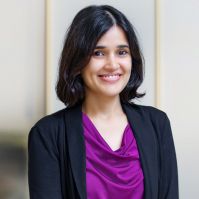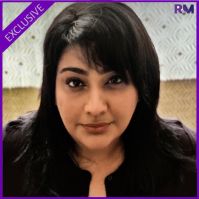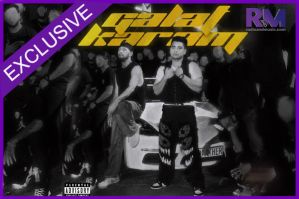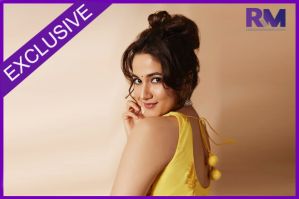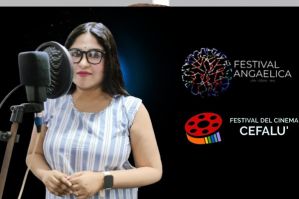Swarathma vocalist Jishnu Dasgupta - 'Music is the common thread, but it's friendship that holds us together'


They are the winners of what is arguably the first radio talent hunt in India- Swarathma, the 'fusion' band from the Garden City of Bangalore who stood way above the 125 bands that started off for the RC-Live, Radio City Talent hunt. The band comprises Vasu Dixit, the lead vocalist and rhythm guitarist; Jishnu Dasgupta the bass vocalist and bass guitarist; Pavan Kumar, back-up vocalist and Indian percussionist; Sanjeev Nayak, the lead violinist, Montry Manual -for drums and percussions; 19 year old Varun is the lead guitarist. The band considers Jishnu its de facto spokesperson.
Radioandmusic.com's Tarachand Wanvari caught up with the band during one of their bi-weekly practice sessions in Bangalore and the band, through Jishnu, shared some insights into how they work and gel together.
Excerpts:
How did the band form?
The band came together three years ago, Vasu and another friend Abinanth, who doesn't play for the band anymore got together and formed a band called Twin Daffodils. They were from different colleges in Mysore. They saw Pawan playing the percussions on a college desk and asked him to join the band. He learnt the various instruments, the table, the mridangam, etc. So Vanu, Pawan and Abinanth were doing the rounds of colleges enjoying themselves. They met Arjun who was a classical violinist and he too joined the band.
Then Vasu met up with Arjun who was a classically trained violinist, a guy who would actually sit down and play the violin. They were the original guys. Then Vasu went on to do his film making course, at the National Institute of Design. But once he came back, they took it on again in Bangalore. They met Montry who handles the drums. Montry is a graphic designer, and Vasu met him in the course of work and they started jamming. The first real success came by way of Radio City Live in 2006. At that time, it was just a Bangalore competition. Swarathma won the contest then and it was great. This line up has now been stable for about eight to nine months.
How did the name Swarathma come to be?
Abinanth was responsible for the name. Instead of just being cool, he wanted the name to mean something. Swarathma was a way to touch people's souls through music. Quite literally translated, it means the soul of the note.
Are domains clearly defined in your band?
There isn't any such demarcation. More than a group of musicians that come here to play, we are a group of friends who do something that each enjoys. And even when we are on stage, we look at each other and the music happens because of that, and not the other way around. Though we did come together initially because of the music, the reason we are together today is because we are such good friends.
However, if you were to look at it from the purely objective point of view, Vasu does much of the song writing and the arrangemets, Montry and Pawan do the photography and design work, Sanjeev does a lot of the online stuff...
And you?
I end up as a sort of spokesperson, though that is not by design. But it could be Vasu who could be doing a lot of the talking, more than anyone else.
So friendship holds you together, it's the binding force?
Music is the common thread, the foundation, but it's the friendship that holds us together. Playing music is what we do together 40 per cent of the time that we spend together. The rest of the time together we enjoy as much as playing.
What do you think differentiates you from the other bands, why do you think you won the all India RC-Live contest this year?
I think that we are more than a group of people that make music. When we are on stage together, we are greater than the sum of our parts. Which means that if you take Pawan as an individual percussionist or me as an individual bassist or Varun as an individual guitarist, we wouldn't be earth-shattering, but if you put us together on one stage, doing something with a common objective, then there is this crackling energy on stage that's hard to replicate for any other group of musicians that are bound together purely by music. It's that strong bond that we share. We did get some feedback from the RC-Live judges that it was great to observe the energy that we had on stage. It's not easy just to be energetic on stage, it's only when you realise that your energy is resonating with the guys playing with you. We have a connect with each other to realise, to feel the moment like, when a number is at the final stage. If the audience wants to listen to music alone, there are brilliant records available, they may as well have listened to it at home. The reason they are there is to be a part of something that is electric, that is alive. And that's the magic of live shows. We have gotten there and we will keep getting better.
I notice that you don't have a keyboard player. Why?
It's by design, because, we have a violinist. The violin takes care of a lot of the filling elements that are required. A keyboard would just be too much. The sound would get a little confusing.
Where is the classical genre heading to in the Bollywood music industry?
Pure classical music no longer exists as there are not many takers for it. Today, what is available is fusion of classical with different genres, like we have a bit of western, pop with classical. Such fusions do not hold any emotions and the song seems cluttered as there are too many things infused in the classical one.
What do you think of the music scene in India? I mean vis-? -vis bands, do you think that they are appreciated here? Where does India stand?
There is always space, maybe a small space, for honest original expression. Of late, there has been an explosion in the number of bands, especially in New Delhi. In fact, Delhi people are saying that there are too many shows. Of late, audiences in India have become more open to original songs that are not by their favourite western bands. Which is why you have bands which are as big as Pentagram and other brilliant bands. The crossover has happened because of a select group of music connoisseurs who have been brought up on a diet of Iron Maiden and Pink Floyd, who know what chord progression means and know the difference between Alternate and Rock music. These are pretty much the kind of people who appreciate Indian Rock as it stands today.
But the listening public at large?
To cross over to the listening public at large, you need to have your own identity. An identity is not going to be formed by copying your favourite band note for note. That's great, good musicmanship, but that is not an identity. The future for a band in India is if it's able to carve its own identity.
What is the identity that you have chosen to carve?
I believe that is for the public to decide, but we must feel the pulse of the Indian youth. Ironically, this is very rooted in Indian tradition while being very open at the same time to incorporate western elements in the way of life.
How lucrative is it to perform abroad as against in India?
Abroad, people appreciate Indian music a lot. With the keen interest of westerners in our music and improvisation of Indian taals and ragas, there is an amazing response to classical music today. Although it is not a new phenomenon, as even in concerts held about 20 years ago, the whole auditorium used to be filled with non-Indians. Foreign jazz musicians are inclined towards Indian classical music and want to learn our music. It is only now that Bollywood music is picking up pace abroad.
So do you think that the music scene in India is improving?
Very much so. The fact that in the RC-Live contest there were around 125 bands which got to showcase their original material itself is a giant leap. I think we are riding a very positive wave.
Where do you see yourselves once you cut the record for EMI? Over the next one or two years?
Obviously, the album is going to give us a lot of visibility. The objective is to carry our music to as many people as possible. I expect that we'll do a lot more live performances which we enjoy. We haven't really thought so much about it. We now have enough material for about two and half to three albums. We will continue working on it and getting better.
Right now we are working on the modalities with EMI. We have a fair idea about the songs that we would like on the album, but we are still in discussions.
Which is your all-time favorite band?
Speaking for the band, our ideal would be Indian Ocean.
Why?
We are in great awe of them and we are great fans. Its not only their music, but the way they believe in themselves.
We've had the opportunity of seeing them live for the first time when they performed in Delhi for the RC-Live. The first thing that we liked about them is that they are together on stage. They are four musicians who are very clearly close friends. The second thing is that their compositions are very highly evolved. There are compositions that make you get up and dance and there are compostions which make you think. You are moving from one artiste to the other, watching what he's going to do next.




